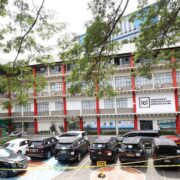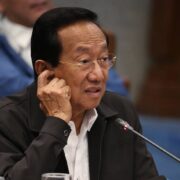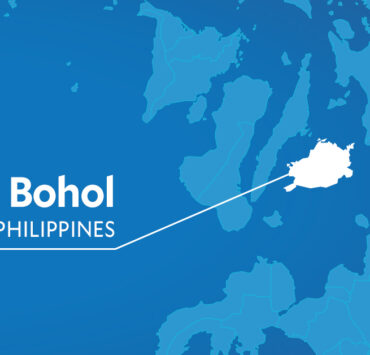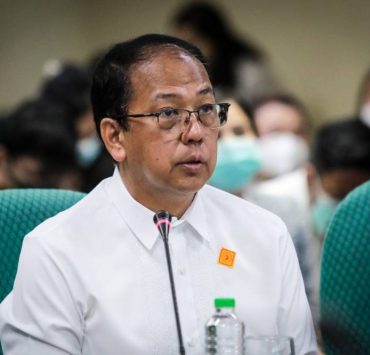Baguio’s $45-M wastewater loan dropped from national priority
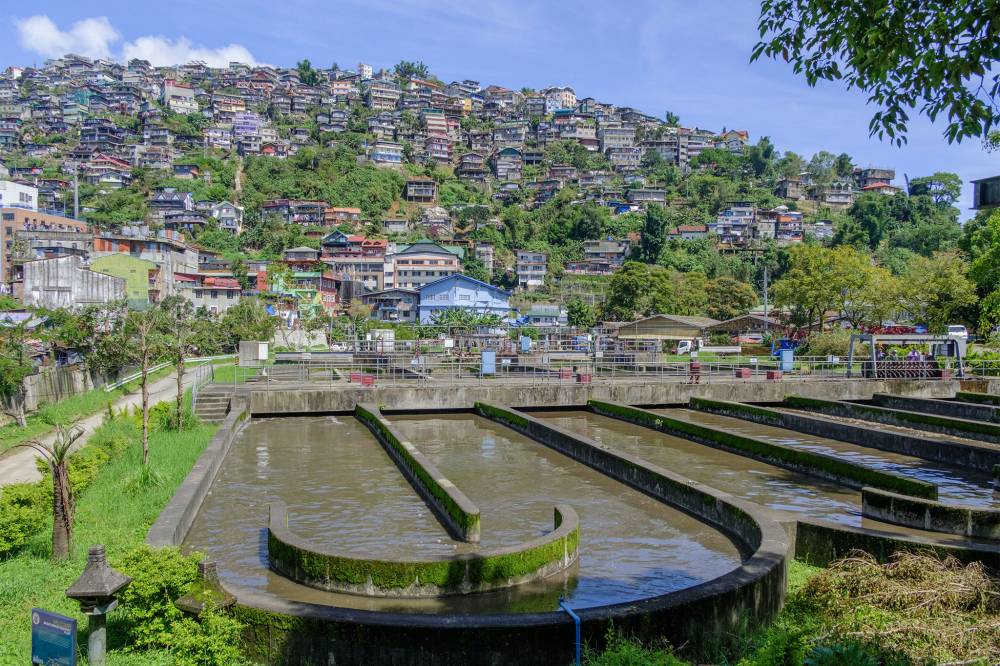
BAGUIO CITY—The city’s plan to secure a $45-million Asian Development Bank (ADB) loan to repair its outdated wastewater plant and American-era sewers has been dropped as a national government priority after taking too long to move forward, the city council was informed on Monday.
Mayor Benjamin Magalong, who began talks with the ADB as early as 2020, has directed the local government to reapply to the Department of Economy, Planning and Development (DEPDev) so it may reconsider supporting the ADB deal for Baguio, according to lawyer Rhenan Diwas, city environment and parks management officer.
Diwas said the mayor has also begun exploring other financing options to upgrade septic systems and reduce pollution flowing into major river systems.
Baguio hosts the headwaters of four rivers: Asin-Galiano, Ambalanga, Bued (which courses through Kennon Road), and Balili, which drains toward the strawberry farms of neighboring La Trinidad, Benguet’s capital town. In 2020, during a meeting at the presidential Mansion, Cabinet officials were told that Balili had a fecal coliform count of 160 quadrillion due to the growing number of households along its banks.
Vice Mayor Faustino Olowan said the city’s continuing initiatives to improve the sewerage system have spared Baguio from being penalized with a daily P25,000 fine by the Environmental Management Bureau for polluting waterways.
Mandated by law
Diwas told the council that the Investment Coordination Committee (ICC) of the former National Economic and Development Authority (Neda) Board—predecessor of the DEPDev—had “delisted” the Baguio sewage project and its proposed ADB loan from the government’s priority investments because the clearance it had earlier granted to the city had “lapsed.”
Councilor Peter Fianza, a lawyer and former city administrator, reiterated his 2020 suggestion that the Baguio Water District (BWD) secure the loan instead, since it has access to water treatment funds. He pointed out that water districts are explicitly mandated under environmental laws to treat wastewater.
The city government needed ICC approval because the nearly P2-billion loan required a national government guarantee, in this case through the Tourism Infrastructure and Enterprise Zone Authority (Tieza).
In 2023, Tieza agreed to take out the loan on behalf of Baguio under the “Baguio Resilient City Tourism Project,” an extension of the national government’s 2018 redevelopment plans for both Baguio and Boracay.
However, some members of the previous council objected to the loan, which was originally set at $50 million, saying the city would continue to amortize it until 2038—or, due to delays, possibly until 2051. Councilors instead urged Magalong to substantially reduce the loan or finance the upgrades in phases, with the city shouldering the expenses for modernizing Baguio’s only sewage treatment plant (STP), which drains into Balili River.
Inherited
Built in 1986 through a grant from the Japan International Cooperation Agency (Jica), the STP was part of a proposed rehabilitation of the city’s septic system, including 61 kilometers of sewer lines dating back to the American Commonwealth period. A 1991 Jica report noted that Baguio would have been “the first urban center with a complete sewerage system.”
But a 1989 Jica review revealed that the facility “was operating at only 16 percent to 28 percent of its full treatment capacity,” a problem inherited by Magalong when he assumed office in 2019.
Jica had then recommended building “new sewer mains under the roads or in the creeks and for existing sewers to be connected to the new mains [in order to] lessen the load on the sewers and to solve [a] leakage problem.”
The ADB loan would have funded the installation of a modern filtering system to boost the STP’s capacity from 8,500 cubic meters of wastewater to between 12,000 and 15,000 cubic meters, according to city officials. A portion of the loan would also have gone to replacing and extending sewer lines from downtown Baguio.
Despite the setback, the council has moved forward with two draft ordinances: one imposing a P150 environmental user’s fee on every tourist entering Baguio, and another improving sanitation fee collections from residents and businesses to help pay for the loan. A draft amendment to the Baguio Environment Code would also require hotels and households to pay based on their water consumption.
The council likewise discussed a proposed agreement that would transfer management of the city’s wastewater system to BWD.



